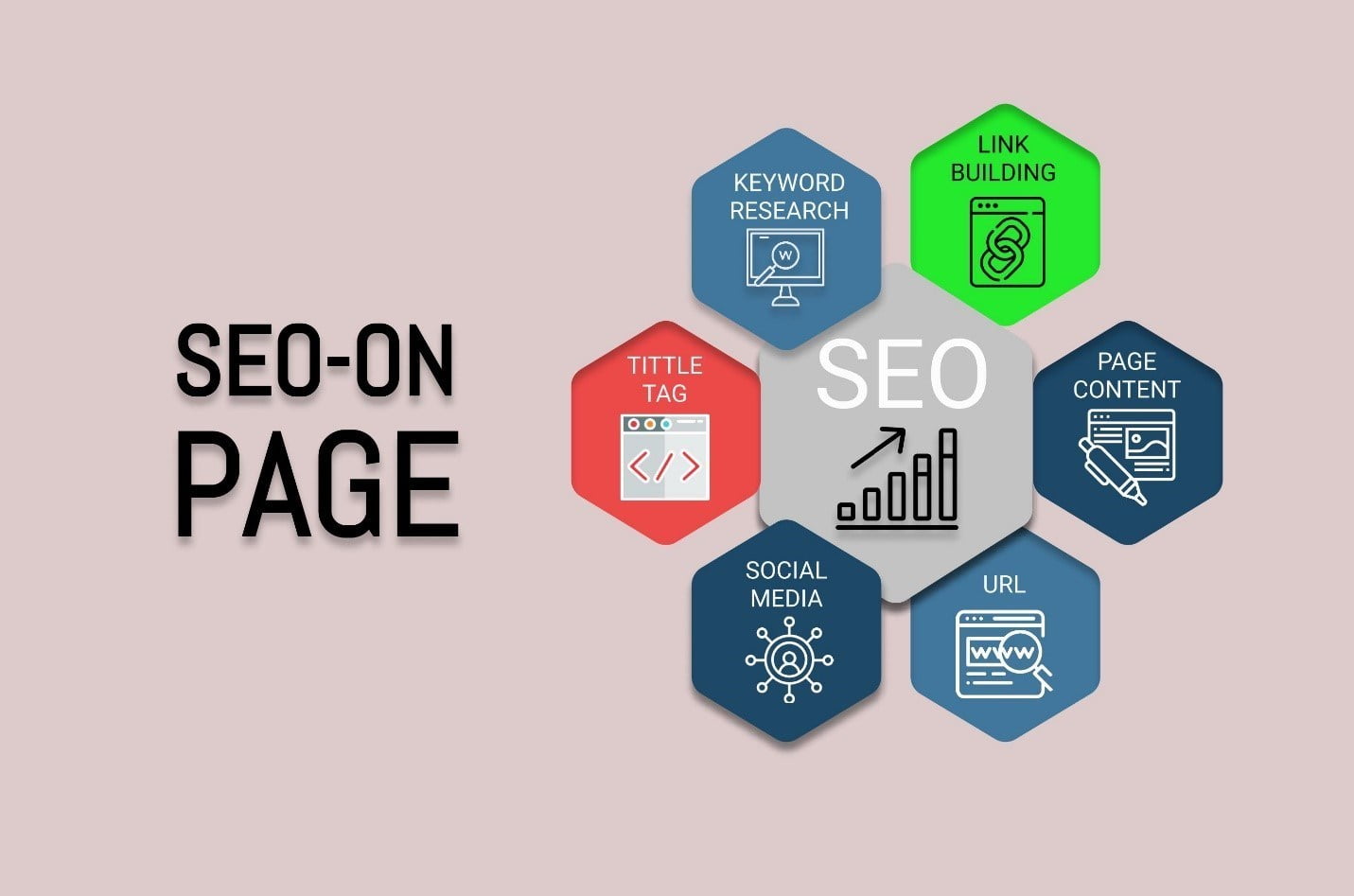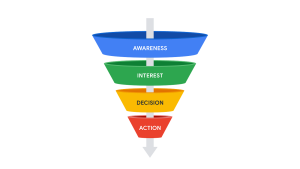In the world of digital marketing, OnPage SEO is a crucial aspect of optimizing a website for search engines. It involves various factors that can be controlled and influenced by website owners and marketers to improve their website’s visibility and ranking in search engine results pages (SERPs). This article aims to provide a comprehensive understanding of OnPage SEO, its importance, and the key elements that contribute to its effectiveness.

OnPage SEO Defined
OnPage SEO refers to the optimization of a website’s content and structure to enhance its visibility and ranking in search engine results. Unlike OffPage SEO, which focuses on external factors like backlinks, OnPage SEO revolves around elements within the website itself that can be optimized to improve its search engine performance.
Why is OnPage SEO Important?
OnPage SEO is crucial for several reasons:
- Improved User Experience: By optimizing various aspects of a website, such as page load speed, mobile responsiveness, and content structure, OnPage SEO enhances the overall user experience. This leads to increased user satisfaction and engagement, ultimately improving the website’s metrics like bounce rate, dwell time, and click-through rate (CTR).
- Increased Visibility: Effective OnPage SEO helps search engines understand the relevance and value of a website’s content. By optimizing key elements like meta tags, headings, and URLs, websites can improve their chances of ranking higher in SERPs and attracting organic traffic.
- Relevance to Target Keywords: OnPage SEO allows website owners to align their content with target keywords. By optimizing title tags, meta descriptions, and content with relevant keywords, websites can appear more relevant to users’ search queries, increasing the likelihood of attracting targeted traffic.
Key Elements of OnPage SEO
To achieve effective OnPage SEO, website owners and marketers need to focus on several key elements. Let’s explore each of them in detail:
1. Content Optimization
High-quality content is the backbone of successful OnPage SEO. It should be unique, informative, and valuable to users. When creating content, it’s essential to consider the following:
- Uniqueness: Content should be original and not duplicated from other sources. Search engines favor unique content that provides new insights or perspectives.
- User-Focused: Content should be written with the user in mind, addressing their needs, answering their questions, and providing practical solutions.
- Keyword Optimization: Including relevant keywords in the content helps search engines understand its context and improves the chances of ranking for those keywords.
- Shareability: Creating shareable content encourages users to distribute it through different channels, leading to increased visibility and potential backlinks.
2. Meta Tags
Meta tags are HTML tags that provide information about a web page to search engines. They include meta titles and meta descriptions. Optimizing meta tags is essential for OnPage SEO because they help search engines understand and index the content. Some key considerations for meta tags include:
- Relevance: Meta tags should accurately reflect the content of the page and include relevant keywords to improve search engine visibility.
- Uniqueness: Each page should have unique meta tags tailored to its specific content to avoid duplication and confusion.
- Length: Meta titles should be concise, typically under 60 characters, while meta descriptions should be informative and engaging, usually under 160 characters.
3. Page Speed & Core Web Vitals
Page speed and Core Web Vitals play a crucial role in OnPage SEO as they directly impact user experience. Consider the following factors:
- Loading Time: Users expect fast-loading web pages. A page that takes more than three seconds to load can result in a high bounce rate. Optimizing page speed by minimizing file sizes, leveraging browser caching, and using fast web hosting can improve user experience and search engine rankings.
- Core Web Vitals: Core Web Vitals are a set of metrics that measure various aspects of user experience, including loading time, visual stability, and interaction time. Google considers Core Web Vitals as important ranking factors, so optimizing these metrics is critical for OnPage SEO.
4. Headings
Headings play a vital role in structuring content and improving its readability. Search engines use headings to understand the organization of content. Key considerations for headings include:
- Hierarchy: Use headings (H1, H2, H3, etc.) to establish a logical hierarchy in your content, with H1 representing the main heading and subsequent headings representing subtopics.
- Keyword Optimization: Include relevant keywords in headings to provide search engines with additional context about the content.
5. URL Structure
A clear and readable URL structure aids search engines in understanding the content and improves user experience. Consider the following best practices:
- Descriptive URLs: Use descriptive URLs that reflect the content and include relevant keywords to make it easier for search engines and users to understand the page’s topic.
- Silo Structure: Organize content into silos or categories to enhance the overall structure of the website and improve search engine indexing. For example, group all SEO-related content under the directory /seo/onpage-seo.
6. Image Optimization
Image optimization involves using descriptive file names and ALT tags for images to help search engines understand and index them correctly. Consider the following tips:
- File Names: Use descriptive and relevant file names for images, including relevant keywords when appropriate.
- ALT Tags: Provide alternative text (ALT) tags for images, describing their content in a concise and informative manner. ALT tags help search engines understand the images and improve accessibility for visually impaired users.
7. Useful Tools for OnPage SEO Analysis
Several tools can assist in analyzing and optimizing OnPage SEO. Here are a few popular ones:
- Google Search Console: This tool helps identify SEO errors, provides insights into website performance, and offers recommendations for improvement.
- SEMrush: A comprehensive SEO tool that allows for easy OnPage SEO audits, competition analysis, and keyword research.
- Ahrefs: A powerful backlink analysis tool that helps identify competitors’ backlinks and monitor your own backlink profile.
- Google PageSpeed Insights: A tool that measures the performance and load time of a website, providing recommendations for optimization.
- Yoast SEO: An essential WordPress plugin that assists with optimizing various OnPage SEO elements like headings, meta tags, and more.
- Screaming Frog: A website crawling tool that identifies SEO errors, broken links, duplicate content, and other issues that can impact OnPage SEO.
FAQs about OnPage SEO
What is OnPage SEO and why is it important?
OnPage SEO refers to the optimization of website content and structure to improve visibility and ranking in search engines. It is important because it enhances user experience, increases click-through rates, and makes the website more relevant to target keywords.
How to find the right keyword for a website?
To find the right keywords, use keyword research tools like Google Keyword Planner, Ahrefs, or SEMrush. Look for relevant terms with high search volume and low competition. Consider user intent and the target audience of the website.
How to optimize title tags and meta descriptions for OnPage SEO?
To optimize title tags and meta descriptions, include the main keyword and accurately reflect the content. Keep the title tag under 60 characters and the meta description under 160 characters. Write engaging copy to increase click-through rates.
How important are headings (H1, H2, H3) for OnPage SEO?
Headings are crucial for OnPage SEO as they indicate content structure and hierarchy. Use H1 tags for main headings with the main keyword and H2/H3 tags for subheadings to organize content and include supporting keywords.
How to optimize page load time for better OnPage SEO?
To optimize page load time, compress images, enable browser caching, minimize CSS and JavaScript, disable unnecessary plugins, and choose a fast web host. Fast load times improve user experience and search engine rankings.
Why is mobile optimization important for OnPage SEO?
Mobile optimization is important because more users access websites through mobile devices. A mobile-optimized website improves user-friendliness, increases dwell time and click-through rate, and receives higher rankings in Google’s mobile search results.
Conclusion
OnPage SEO plays a vital role in optimizing a website for search engines and improving its visibility and ranking in SERPs. By focusing on content optimization, meta tags, page speed, headings, URL structure, image optimization, and other key elements, website owners can enhance user experience and increase their chances of attracting organic traffic. With the right tools and strategies in place, OnPage SEO can significantly contribute to the success of a website in the digital landscape.




No comments! Be the first commenter?